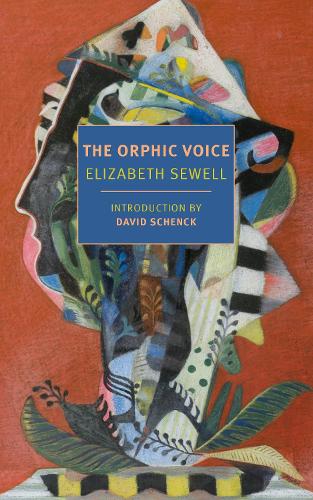
The Orphic Voice
(Paperback)
Publishing Details
The Orphic Voice
By (Author) Elizabeth Sewell
By (author) David Schenck
New York Review Books
NYRB Classics
24th May 2022
3rd May 2022
United States
Classifications
General
Non Fiction
809.1936
Physical Properties
Paperback
496
Width 127mm, Height 203mm
Description
A wondrously written book of literary criticism and philosophy that maps the relationship between poetry and natural history, connecting verse from poets such as Shakespeare and Rainer Maria Rilke to the work of scientists and theorists like Francis Bacon and Michael Polanyi. Taking its bearings from the Greek myth of Orpheus, whose singing had the power to move the rocks and trees and to quiet the animals, Elizabeth Sewell's The Orphic Voice transforms our understanding of the relationship between mind and nature. Myth, Sewell argues, is not mere fable but an ancient and vital form of reflection that unites poetry, philosophy, and natural science- Shakespeare with Francis Bacon and Giambattista Vico; Wordsworth and Rilke with Michael Polanyi. All these members of the Orphic company share a common perception that "discovery, in science and poetry, is a mythological situation in which the mind unites with a figure of its own devising as a means toward understanding the world." Sewell's visionary book, first published in 1960, presents brilliantly illuminating readings of A Midsummer Night's Dream and Rilke's Sonnets to Orpheus, among other masterpieces, while deepening our understanding not only of poetry and the history of ideas but of the biological reach of the mind.
Reviews
Elizabeth Sewells The Orphic Voice remains a vital source book for both working poets and readers invested in poetry. . . . This is a book of inspiration, yet not of the self-help variety; less a handbook or practical guide than a hodgepodge of terrific quotations and spirited insight, The Orphic Voice virtually insists upon a reader who is willing to meander through its pages. Patrick James Dunagan, Rain Taxi
This is an inspired book, an argument which is poetry in action. It may very well be that Elizabeth Sewell is of the visionary company which her work describes. I regard The Orphic Voice as a book of tremendous originality and importance. George Steiner
Esoteric [and] engrossing . . . Sewell contends that poetry is our most inclusive form of thought, the best instrument yet devised for dealing with wholes, for unifying all the forms in nature, whether they pertain to inner or outer landscape. Stanley Kunitz
The Orphic Voice is important both in the literature of the history of ideas and as a kind of source-book for working poets (and readers of poetry). Denise Levertov
Author Bio
Elizabeth Sewell (1919-2001) was an author and academic best known for her criticism exploring the links between literature and science. She taught at numerous universities during her career, including Vassar College, the University of Notre Dame, and the University of North Carolina at Greensboro. In addition to her books of criticism, she published several novels and poetry collections along with a memoir, An Idea, and a book of essays, To Be a True Poem. David Schenck is a writer and academic, and was a friend of Elizabeth Sewell.
